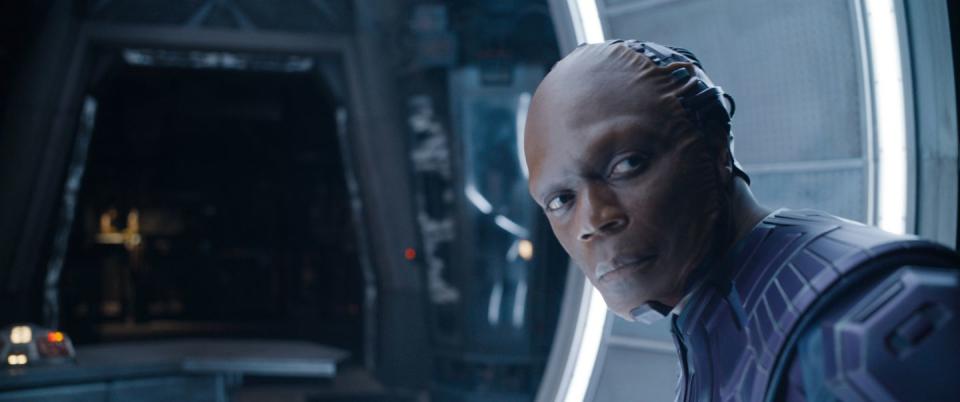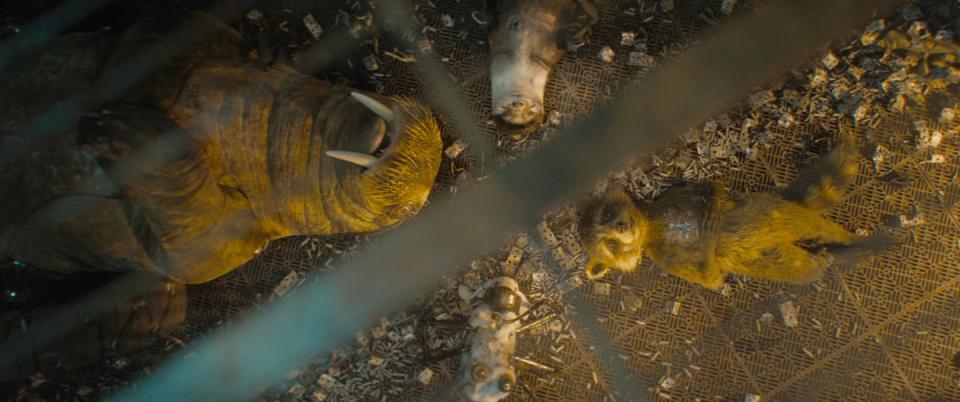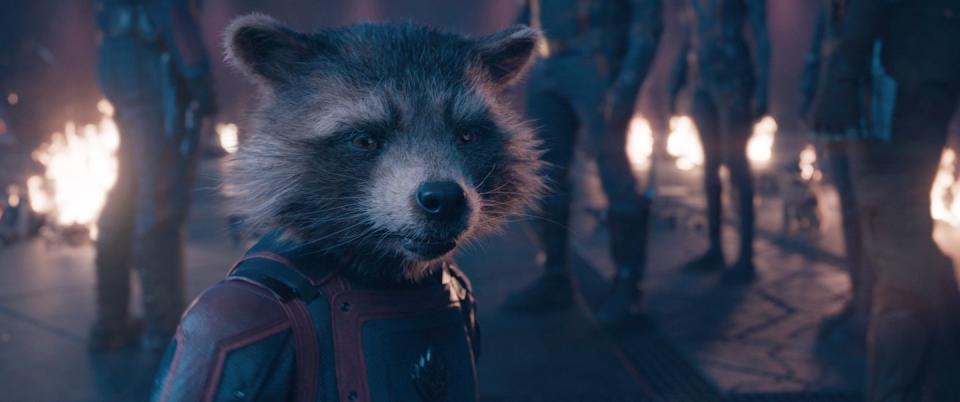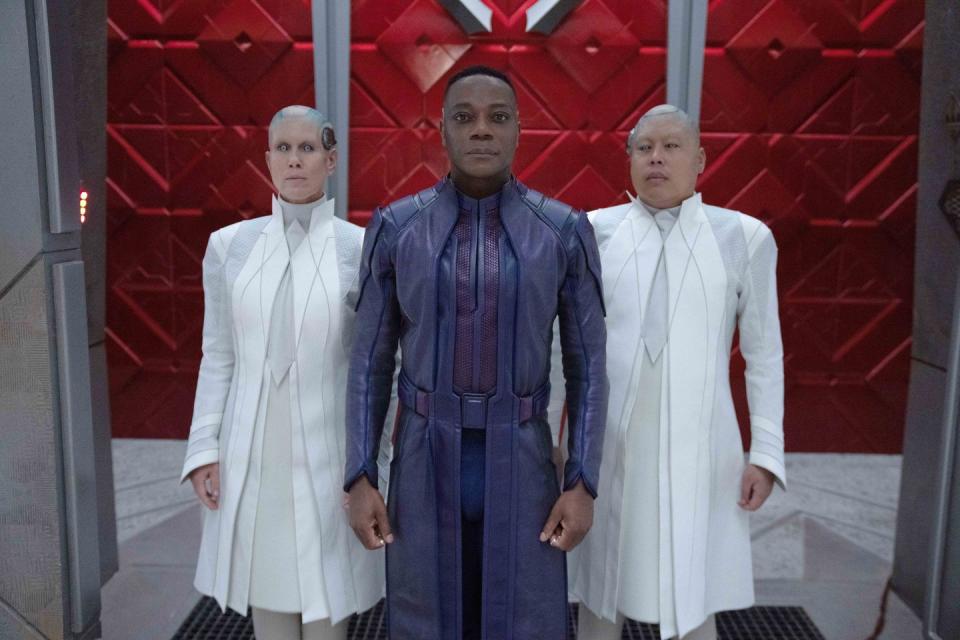Guardians of the Galaxy 3's High Evolutionary avoids MCU villain issue
Guardians of the Galaxy vol 3 spoilers follow
There's nothing more chilling than hearing these words from Chukwudi Iwuji's High Evolutionary: "There is no God… That's why I stepped in."
It's a mic-drop moment for the MCU's latest villain in James Gunn's Guardians of the Galaxy Vol 3. Iwuji's Shakespearean delivery exudes so much gravitas and authority that it's hard not to place him among the very best villains in the franchise, though it's fair to say that the MCU has had mixed fortunes in that department.
The early days saw the franchise accused of churning out generic, formulaic villains (Thor: The Dark World's Malekith, for example). But over the years, there has been a definite push to capture something meaningful. Josh Brolin's Thanos, Michael B Jordan's Killmonger and Tenoch Huerta's Namor are notable attempts by Marvel to present its villains through an empathetic lens: you may disagree with their actions, but they possess an identifiable mindset.
While Phase Five is still in its infancy, there's potential for Kang to go down this route with his alternate versions across the multiverse. However, given Jonathan Majors' recent assault allegations, it's unclear what the future holds right now for Kang.
This brings us back to the High Evolutionary, who – pun intended – represents an 'evolution' for the MCU.

Gunn's magnum opus takes a wild swing by straying away from the MCU's recent villainous conventions. While traditional villains may seek to conquer the universe or devise compelling arguments to fix past grievances, for Gunn's story, there is no empathetic edge on offer.
The High Evolutionary is just pure evil – simple as.
The alien geneticist seeks only one thing: perfection, a society rid of its unique ailments and formed into a dreamed utopia, whatever the cost. As the corporate owner of Orgocorp, his creations are his intellectual property and he wields his cruelty with a God-like sense of entitlement.
He installed a kill switch into Rocket to ensure no one tampers with his creation. He also created several galactic races, including The Sovereign, and despite their own belief in their superiority, all it takes for the High Evolutionary to showcase how much they are beneath him is a simple apple crate, which he uses to make himself taller than Elizabeth Debicki's Ayesha.
It's the small details that elevate Guardians of the Galaxy 3's most heartbreaking moments where we see the extent of that power. Through a series of flashbacks, we see young Rocket taken from his litter of newborn racoons and fitted with mechanical enhancements to his body.

In captivity, he befriends Lylla, Teefs and Floor, who all display similar signs of grotesque experimentation, be it Lylla's mechanical arms or Floor's spider-legs. They are sold on the promise of a new life, only to be fed a lie. Except for Rocket (who eventually escapes), his friends suffer the consequences and are killed.
Animal cruelty is a major talking point within Gunn's script, an awareness that's not only comic-book accurate but an ongoing struggle made all too painfully real with the UK Government's recent decision that cosmetics testing on animals can resume after a 25-year ban.
But Vol 3's narrative plunges further into the darkness. The High Evolutionary – as a figure – represents all those countless acts and atrocities committed in the name of "the greater good".
Rocket's code number, 89P13, is a dehumanising tactic aimed to remove identity and personality that bears an eerie similarity to how the Jews were referenced and catalogued during the Holocaust.

In the movie's final act, Drax, Mantis and Nebula encounter the High Evolutionary's latest experiment: children imprisoned in cages, a national outrage conducted during the height of Trump's Presidential reign.
And if Gunn's script weren't subtle enough with that point-blank analogy, how about a commentary on the migrant crisis? With the High Evolutionary's plan thrown into disarray (including one excellent needle drop of the Beastie Boys' 'No Sleep Till Brooklyn'), the Guardians mount a daring rescue for the captive children and animals (including Guardian-to-be Phyla-Vell) by giving them a home on Knowhere.
Guardians of the Galaxy 3's effectiveness is a result of a villain devoid of sentiment and compassion, serving as a counterpoint to the Guardians' own emotive (and occasionally comical) decision making.
Such is the level of arrogance and hatred towards life that initiating a chain reaction that destroys Counter-Earth "because he can" is a terrifying reality. Gunn establishes that there are no limits, and if there are no limits, then anyone is expendable to the High Evolutionary's 'scientific' wrath.

Ultimately, he proves a worthy adversary for the Guardians. Call it the re-evaluating of life after riding the storm of the pandemic (and everything that came afterwards), it makes for a rewarding payoff to Vol 3.
Chukwudi Iwuji's magnetic performance showcases a villain who is irredeemable, a person we love to hate. Gunn's movie sits in that knowledge, rather than looking for answers, excuses or another point of view.
The movie's heart and soul, which celebrates our flaws and how we find our ‘tribe' in our communities and family, is its endearing faith in its people. The Guardians' selfless camaraderie throughout the trilogy is a great reminder of the qualities that make us who we are.
And as this ragtag of intergalactic misfits waves their last goodbye, it's a feeling the world could use more of.
Guardians of the Galaxy Vol 3 is out now in cinemas.
You Might Also Like

 Yahoo Movies
Yahoo Movies 
